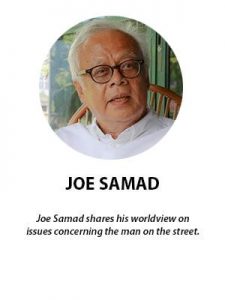Sabah’s tumultuous history of competing claims

The Sulu arbitration judgement in Paris has brought skeletons out of the cabinet of history. The question for scholars is whether an interested party with an ancient document can lay claim to a sovereign nation’s assets or territories.
(FMT) – Using triangulation methods, renowned local historian Shari Jeffrey (also known as Kumis Kumis) recently co-wrote with Avtar Singh in a local daily that only Brunei could rightfully claim Sabah. The article cited historical documents.
So far Brunei has been silent on the issue.
Shari summarised Sabah’s history as being about war, displacement, migration and settlement, and this seems true till today.
In recent history, the Philippines has claimed Sabah (formerly North Borneo) as part of its territory. War and unrest in the southern Philippines have displaced many Philippine citizens and forced many to become refugees in Sabah, resulting in the long outstanding issue of pendatang tanpa izin (PTI), meaning illegal immigrants.
Many economic migrants from the Philippines and Indonesia’s Kalimantan have entered Sabah legally or illegally in search of greener pastures.
The PTIs and economic migrants who managed to get papers and even blue identification cards eventually settled in Sabah, increasing the population beyond the normal birth rate.
In 2013 a group of armed Sulu intruders who claimed to be the members of the Royal Sulu Force landed in Kampung Tanduo, a village in Lahad Datu, and attacked our security forces. Many lives were lost. That scary incident is etched in the minds of many people, giving a sense of insecurity along Sabah’s porous borders.
While the arbitration dispute is being handled by parties or committees representing the federal government, action has been taken by “Sulu families” to seize overseas assets belonging to Malaysia or Malaysian entities, the first being Petronas’ overseas assets.
While it is left to the Malaysian authorities to resolve the issue of sovereignty, Sabahans are wondering what is in store for them.
Sabah politicians across the political divide are united in seeing the promises of the Malaysia Agreement (MA63) settled once and for all. Where they differ is the approach to the many subjects and their expected outcomes.
All Sabah politicians agree that Sabah’s oil and gas resources have benefited the federal coffers, a one-sided affair that has left many in Sabah’s interior districts living below the poverty level.
Kota Belud MP Isnaraissah Munirah Majilis was evicted from the Dewan Rakyat for insisting that her motion on the claims of the Sulu sultanate be discussed.
As the Speaker rejected her letter thrice, she claimed that the federal government was interested only in Sabah’s oil and not bothered by Sabah’s sovereignty claims by foreign countries. The Sabah state assembly has rejected the same discussion, claiming that they would be sub judice.
Two state assemblymen have announced that they will move a motion in the Sabah legislative assembly to revoke the Petronas agreement signed by Harris Salleh in 1976 immediately following the demise of Fuad Stephens and other cabinet ministers in the ill-fated Double Six tragedy. Failing that, they will institute a judicial review.
For many years, Sabahans have been living on the edge. In December 2021, the South China Morning Post, quoting a security source, wrote of a secret plot to invade Sabah with Sulu militia. It said the plot was hatched in the southern Philippines.
Sabah does not need another Kampung Tanduo invasion or Sulu heirs claiming Sabah as their territory and seizing its land and assets. Forget the US$15 billion award claimed by the Sulu heirs, the situation is as unnerving as when Russia invaded Ukraine.
Several parties have claimed that Malaysia did not take action to deny the Sulu claims. However, former Attorney-General Tommy Thomas says in his memoirs that actions were taken to thwart the claims in the Spanish courts.
Thomas writes: “Most important is the doctrine of state immunity. State immunity is a mandatory rule of customary international law of long standing that sovereign states may not be impleaded in the domestic courts of other sovereign nations against their will.”
It seems the problem arose after Malaysia stopped payments to the Sulu descendants after they had been receiving the payments for 135 years. This begs the question: if the Sulu claims are invalid, why was the government paying the Sulu heirs all those years?
The recent increase in claims may have been adjusted to reflect the oil and gas revenues since the 1970s, according to Thomas.
Under Thomas’ instructions, an action was filed in the Sabah High Court seeking an injunction to restrain the continuation of the Spanish Arbitration, which is known as the anti-suit injunction established under English law.
In summary, the High Court judgement in Government of Malaysia v Nurhima Kiram Fornan & Ors held that Malaysia is a sovereign nation and no foreign court can have power or jurisdiction over it.
According to Thomas, the court papers were served on the British lawyers of the eight individual claimants and the Spanish arbitrator.
Some legal experts are of the opinion that Sabah as a signatory and partner of the MA63 should be included in any international representation since it is the most affected state in the international arbitration dispute.
It looks like Sabah’s tumultuous history will continue for some time, creating great uneasiness and unhappiness in the population. It looks like it’s not going to be “Sabah Maju Jaya” for a long time to come.

Malaysia stopped paying the sultan of Sulu’s heirs their annual compensation after the 2013 Lahad Datu incursion. (Reuters pic)

